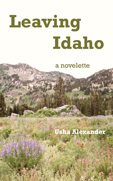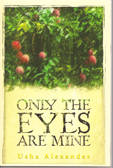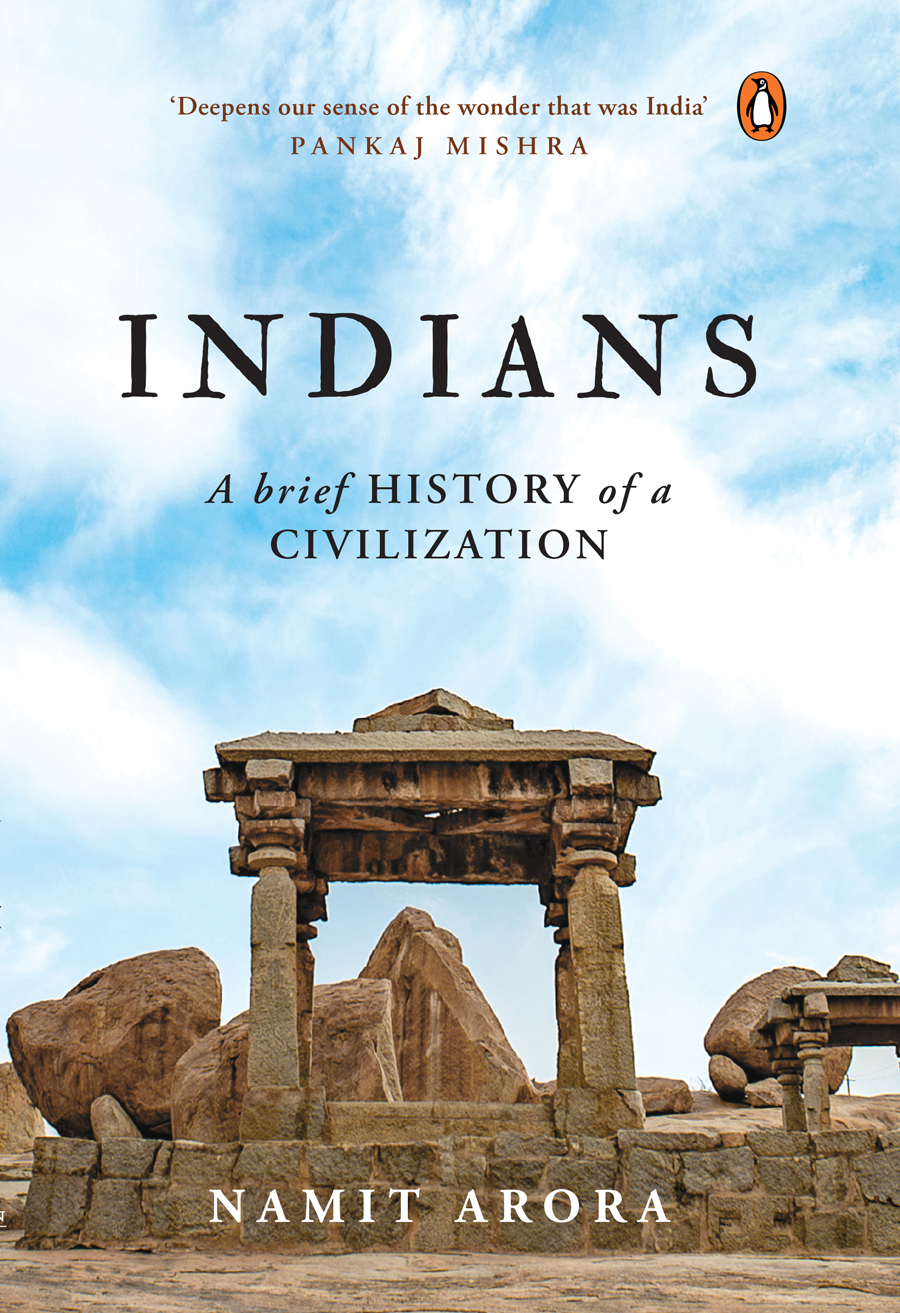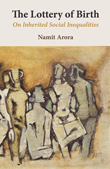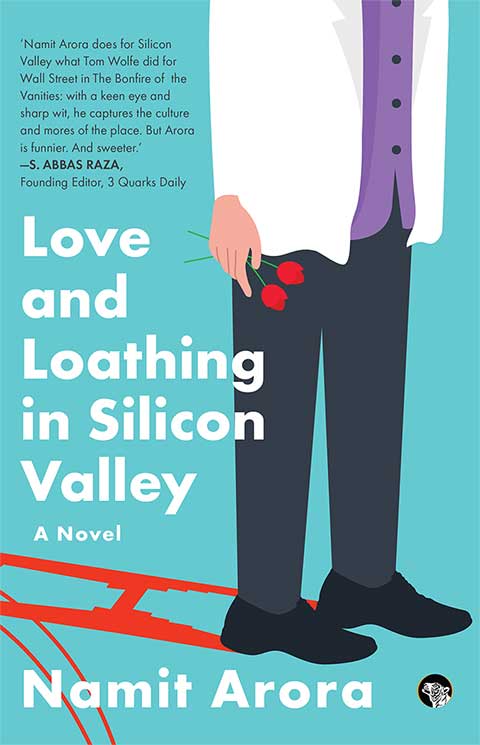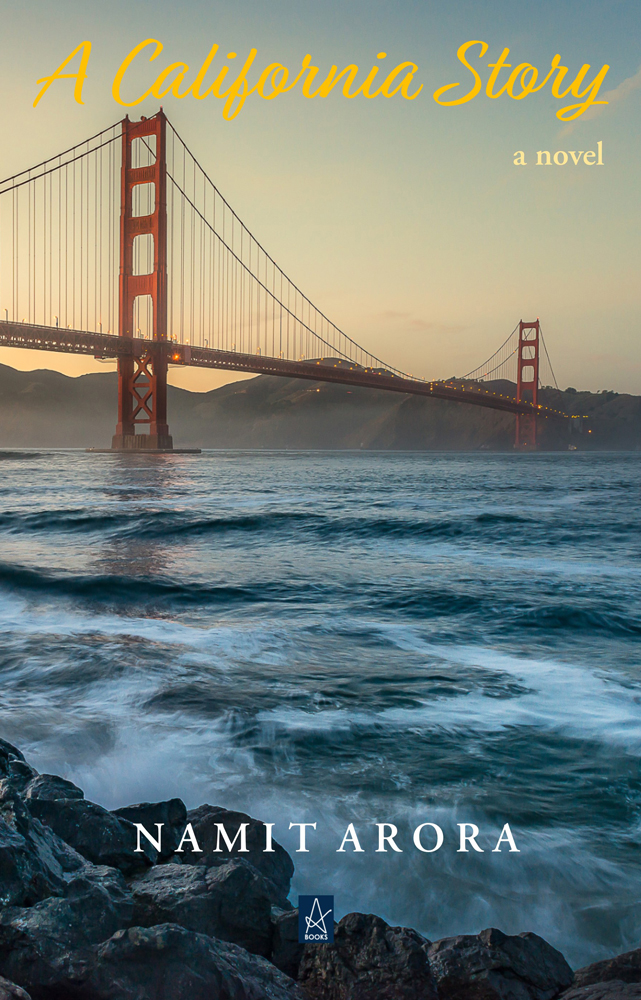| Index of articles from the Blog |
| Animals |
| Anthropology & Archaeology |
| Art & Cinema |
| Biography |
| Books & Authors |
| Culture |
| Economics |
| Environment |
| Fiction & Poetry |
| History |
| Humor |
| Justice |
| Philosophy |
| Photography |
| Politics |
| Religion |
| Science |
| Travel |
Books by
Books by
|
What We Talk About When We Talk About the Future
By Usha Alexander | May 2022 | Comments
|
[The 19th (and final) part in a series of essays, On Climate Truth and Fiction, in which I raise questions about environmental distress, the human experience, and storytelling. It first appeared on 3 Quarks Daily. The previous part is here.]
And if you worry that it might get worse, the answer is a hard yes: under the best-case scenarios, it will get much worse—and at a faster rate. This is according to the most comprehensive assessment of climate-change impacts compiled to date, part two of the IPCC’s Sixth Assessment Report by Working Group II, released in March 2022. The report projects, for instance, that in Africa alone half the population—seven-hundred million people—may be displaced due to water stress by 2030. Earlier forecasts cited by UN agencies that a billion people could be desperately displaced by 2050 do not seem improbable. But I get it. This isn’t how we’re supposed to talk about the future. I too grew up imbibing and propagating the common technotopian fantasies of the late-20th Century zeitgeist, of a belief in humanity’s manifest destiny of multi-planetary spread and dominion. I imagined I might live to see people permanently inhabiting distant space stations or launching forays to colonize and terraform Mars. Though I’d always been aware that the non-human world around me was being annihilated, I squashed my intuitive fear about that growing danger with my learned techno-optimism about the future. Like most people of my time and place, I just didn’t put the pieces of the puzzle together. Not until very recently, that is. Not until I began truly digging in and trying to understand climate change.
None of us want our children to grow up in a world of violence engendered by border conflicts, natural disasters, and unmanaged resource scarcity. Or to leave anyone vulnerable to the human exploitation and trafficking that thrive in such desperate situations, especially if our capitalist system is allowed to turn increasingly catabolic. We need to be asking what it will take to minimize conflict and violence as disaster multiplies and desperation mounts. For without fundamentally reconsidering our ideas of what actually constitutes civilization, new solar panels and windmills and electric vehicles will only go on powering the same ecocidal, ethnocidal machine that is our presently dominant way of life. These technologies will only create an illusion of change while continuing to perpetuate the same pattern of overexploitation, overpollution, and overshoot. So rather than focusing on more efficient extraction of energy and materials to continue our current lifestyle, we need to prepare ourselves to consume less of everything, to live much more lightly on Earth. The most holistic, effective, and enduring responses to our planetary predicament will be character-driven and social—not technological. And yet, social avenues for mitigation and adaptation remain a relatively empty field of endeavor or commentary in the mainstream. The handful of good ideas circulating at the peripheries deserve far greater engagement. For instance, international agreements could create a legal category for climate refugees, granting displaced persons access to aid or resettlement options. Building upon this is the idea of climate passports, whereby countries that historically contributed the greater part of greenhouse gas emissions would grant commensurately more passports to those in need of relocation; overwhelmingly, those most in need are peoples who have contributed the least to global warming. Of course, limiting the program to refugees of climate disasters as somehow more deserving than refugees fleeing other egregious environmental damages caused by mining, deforestation, or other modes of industrial extraction and its sociopolitical fallout, remains an inadequate framing. But at least this conversation is a new way of looking at our predicament, ultimately entailing a reimagining of borders and the very meaning of nation-states, alongside other social and political features of our modern world. Tackling the problem of unrelenting, mass influxes of refugees will ipso facto alter our present systems so fundamentally that we’ll start seeing our problems quite differently. Other social innovations to reduce general ecocide and increase equitability include enacting laws that support intergenerational justice. Or taking more seriously certain concepts that many of us have long regarded as fringe, such as recognizing the personhood and rights of non-human beings and even landforms. Chileans are presently attempting to do this by rewriting their national constitution to reflect the intentions laid out in the Universal Declaration on the Rights of Mother Earth; similar initiatives are being spearheaded by Indigenous groups from Ecuador to New Zealand to Africa, inflected by their own traditional cosmologies. All of these efforts represent resurgences of pre-Colonial stories into the neocolonial mainstream, asserted as concrete and tractable measures that impact our legal, social, and political frameworks. By requiring us to question and reconceive our power structures and systems of value, these legal challenges break open our operational paradigms, creating space for our societies to alter our intellectual, spiritual, and mythic landscapes too. By changing the public conversation, such efforts disrupt our narratives of how the world works, as much as how human beings work together in the world, preparing the ground for new stories to arise. To help us face the existential and moral challenges of the future, it’s essential to crack open the dominant stories that perpetuate the status quo, including our narratives about who we are and what it means to be human, as much as our geopolitics, our gender roles and relations, what has meaning, what constitutes “success” in life, what is even possible. As law professor Jacinta Ruru observed in 2017, referring to new laws passed in Aotearoa (New Zealand) that recognize certain landforms as legal persons,
We are on the cusp of a civilizational paradigm shift as profound as the one that moved our ancestors from nomadic lives of gathering wild foods to settling down and planting crops on a scale to support dense, urban settlements. In the same way in which that transition changed our stories of ourselves and our world, giving birth to entirely new forms of religion, social and political structures, living arrangements, dietary norms, even new frames of identity, we must begin to imagine a human cultural future that’s a departure from the past. But eleven thousand years ago, the shift happened very slowly: thousands of years and hundreds of generations passed between the earliest, semi-sedentary habitations and the rise of agricultural cities. Today, we don’t have thousands of years to shift our paradigms. The changes are bearing down upon us at disorienting speed, requiring us to respond within a single generation. We are challenged to be proactive about this transition. And, although this time we have a different kind of detailed information about the world than what the ancients had, which can surely play a useful role, it bears keeping in mind that, for all its insights, our dominant knowledge system is primarily aimed at manipulating the living and non-living world to advance the interests of a minority of human beings at the expense of the rest, including the whole of the biosphere, and the very geochemical balance of the soil, sea, and sky. If we hope for a different end result, we must begin by changing ourselves, our expectations of the future, our own hearts and minds. Radically Reimagine Hope
Yet, rather than avidly exploring possibilities for social transformation, today people talk far more about “hope” and “doom,” as though these were clear and mutually exclusive moral responses to our crises, as though rallying unexamined “hope” were a virtue. But this is a false dichotomy that has enabled a shallow framing of our dilemma. For it matters very much what we hope for. And it matters just as much what vision of doom we set those hopes against. False hopes—those built upon the quicksands of denial—are nothing more than cunning avatars of despair. Hoping for futures built on fantasy—especially the fantasy of maintaining your own social or economic privilege—because you can’t find the courage to accept the limits of reality or new avenues for light, is a way of giving up on humanity. Holding onto any hope that we can preserve industrial civilization, indeed, any hope borne of faith in market-driven technology, capitalism, cryptocurrency—or any other ahistorical figment built upon the transient conditions of the Holocene world—is actually worse than merely false or hollow hope: it is an annihilating hope. It is a hope that embraces obscene global inequities and injustices wrought by ongoing colonial extractivism, favoring the desires of the Global North at the cost of everything else. It is a hope that will keep eroding the integrity of our planet’s living systems, until the last of us are gone. That is not hyperbole. Only by understanding what the stakes really are can we even begin to find real hope. After all, how can it be possible to effectively address any crisis without first confronting it and investigating its complexities, even when the honest assessment must include reckoning with outcomes that are nothing short of doom—for certain ways of life; for so many dreams; for familiar landscapes, ecosystems, seasons; for untold numbers of living beings? In fact, pretending our predicament is either less serious, less difficult, or less far-advanced than it actually is, pretending the “solutions” are simpler than they are, has consistently produced only delays, dismissals, and delusions that continue to block any real and effective action against climate change—let alone against all the other forms of ecocide, which even today hardly merit a mention in the mainstream discourse, apparently for fear of complicating the picture or opening the door to “doomist” thoughts.
So here we stand at a novel inflection point in the human story, one of profound reckoning perhaps unmatched in human experience, even as our stories presently fail us in providing insight and language, let alone imagination and guidance for what is to come. Lacking ready narratives to prepare us for epic change, we dismiss its very possibility; we expect the world we knew in our lifetimes to magically reassert itself and continue as it had been, as though past performance were a guarantee of future results. But we would do well to pierce the bubble of illusions our dominant narratives wrap around us. They limit what we can see and understand, where we can explore in order to find new solutions within in the multi-hued, iridescent muck of who we are beyond what we think we know.
But when you strip away the denial—about entropy and ecology and history and violence and social worlds and true costs and the conundrums of complex systems—our dominant narratives are revealed as self-destructive delusions. Our present conception of civilization is unsustainable. Indeed, it is already finished—even if those of us near the top, shielded as we are from its losses, don’t know it yet. Market-driven techno-fixes cannot save it. Only if we confront our changing world not merely as a technical problem or an economic problem or a logistical problem in need of tech-genius saviors, but as the deeply entangled, environmental and cultural predicament that it is, can we ask the questions that might lead us to discover new ways of living with each other on this Earth. Ours must be a time of paradigm shifts and transitions. Changes. Choices. Heroically, radically, collectively reimagining. Stories are the essential tools for creating human societies out of human individuals. And when they fail us, we must change them. In fact, we will. But to build a future based on everything we’ve discovered—this time, in tune with broader human solidarity, wellbeing, and fairness, with a value for sustainably preserving human societies within the greater living world—we must first clearly envision that future: a thriving, transitioned world that isn’t based around the excess consumption and domination we expect today. To do that is an undertaking borne of genuine hope. Yet we cannot even begin to hope without openly engaging with the real dilemmas that face us, wondering courageously, and creatively imagining new directions for civilization, questioning our own values and beliefs and priorities as a part of the changing world. I don’t know if a just transition will eventually be achieved, but I do know that if most of us can’t or won’t even engage honestly with the real questions and begin to dream the possibility, it certainly never will be. For we cannot attempt to create that which we can’t first imagine. ****
[END] Notes: For anyone searching for popularly and critically recognized fiction that literally or metaphorically deals with themes of ecocide, or that imagines the impacted human future or an alternate, ecologically sustainable society, all without resorting to the usual triumphalist or monotonously dystopian narratives, here are a handful I might suggest, in no particular order: 1. The Overstory, a realist novel about trees and humans, by Richard Powers 2. How Beautiful We Were, a realist novel illustrating one way that industrial resource extraction destroys people, histories, and social worlds, by Imbolo Mbue 3. Station Eleven, a realist novel set in an imagined near-term future where an extreme pandemic has precipitated the collapse of industrial civilization, but survival is insufficient, by Emily St. John Mandel 3. The Collapse of Western Civilization: A View from the Future, a “novel of ideas” about the effects of climate change and the human response, by Naomi Oreskes and Erik M. Conway 4. Ishmael, a “novel of ideas” about the paradigm of human exceptionalism and its harms, by Daniel Quinn 5. The Dispossessed, a classic speculative novel interrogating the idea of utopia, by Ursula K. Le Guin 6. Years and Years, a science-fiction limited series about the near-term, climate-changed future, produced by BBC One 7. The House, a surrealist stop-motion animated film (maybe) regarding the modern condition of human relatedness to our planet and each other…? produced by Netflix 8. Don’t Look Up, a satirical feature film about the threat of existential disaster and the mainstream media, produced by Netflix 1. What We Talk About When We Talk About The Weather 4. Tales From a Changing World 6. Modern Myths of Human Power 10. On Progress as Human Destiny 11. Of Gods and Men and Human Destiny 12. Musings on the Anthropocene 13. Stories of Wealth and Distribution 14. Toward a Polyphony of Stories 15. What a Way To Go 18. This Is Not the Zombie Apocalypse
|
Designed in collaboration with Vitalect, Inc. All rights reserved. |
|



